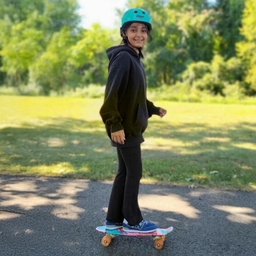Research News from CHOP

Children’s Hospital of Philadelphia Researchers Show Stem Cell Transplant Offers Potentially Curative Therapy in Pediatric Patients with Monogenic Inflammatory Bowel Disease
A collaborative team of researchers from Children’s Hospital of Philadelphia (CHOP) found that hematopoietic stem cell transplantation is a highly effective method for treating patients with monogenic inflammatory bowel disease (IBD), a more severe form of the illness usually affecting younger patients.
Children’s Hospital of Philadelphia Researchers Develop Promising Tools to Enhance Gene Therapy Delivery for Hard-to-Treat Diseases
Researchers at CHOP established a transformative advance in gene therapy, demonstrating how new generations of AAV vectors can target relevant brain cells and structures at much lower doses than current AAV based drugs.
Children’s Hospital of Philadelphia Researchers Find Pediatric Patients May Be at an Increased Risk of Kidney Problems after COVID-19 Infection
Researchers at Children’s Hospital of Philadelphia (CHOP) found that children and adolescents who had SARS-CoV-2 infection (COVID-19) were at a higher risk of developing kidney-related complications, especially if they have preexisting chronic kidney disease (CKD) and experienced decreased kidney function while actively infected.
Children’s Hospital of Philadelphia Researchers Recommend New Standard of Care for Families with Hereditary Neuroblastoma Linked to ALK Mutation
Researchers at Children’s Hospital of Philadelphia (CHOP) highlighted the success of anaplastic lymphoma kinase (ALK) inhibition therapy in treating hereditary neuroblastoma, a rare subset of a common childhood cancer. Researchers suggest that the findings, published recently in JCO Precision Oncology, could help establish a new standard of care.
Preclinical Study from Children’s Hospital of Philadelphia Highlights Innovative Approach to Replacing Brain Cells in the Treatment of Leukodystrophies
Researchers at Children’s Hospital of Philadelphia (CHOP) and the Perelman School of Medicine at the University of Pennsylvania announced the first ever direct approach to the depletion and replacement of microglia, the native immune cells of the central nervous system (CNS).

Children’s Hospital of Philadelphia’s First FDA Approved Gene Therapy Patient for Severe Beta Thalassemia Celebrates Two Year Treatment Anniversary
Patient no longer needs regular blood transfusions for her inherited blood disorder, and her future has been transformed.
Children’s Hospital of Philadelphia Researchers Develop Specialized Growth Charts to Help Doctors Track Rare Pediatric Overgrowth Syndrome
Researchers from Children’s Hospital of Philadelphia (CHOP) collaborated with other health systems to develop specialized growth charts for children with Beckwith–Wiedemann Spectrum (BWSp), the most common epigenetic overgrowth and cancer predisposition disorder in children. The findings illustrate how newly developed growth charts are designed to better represent how children with the condition grow, which can improve personalized treatment.
Children’s Hospital of Philadelphia Researchers Find Gene Therapy Shows Long-Term Benefits for Hemophilia B Patients
Researchers at Children’s Hospital of Philadelphia (CHOP) announced the results of the longest follow-up study to date for individuals receiving the gene therapy fidanacogene elaparvovec to treat hemophilia B, a rare, X-linked disorder resulting from a deficiency in coagulation factor IX (FIX) activity.

Children’s Hospital of Philadelphia Researchers Develop Cell Atlas to Uncover Significant Shifts in the Neuroblastoma Tumor Microenvironment
Researchers at Children’s Hospital of Philadelphia (CHOP) developed a longitudinal atlas of neuroblastoma, a common and potentially deadly childhood cancer, to gain deeper understanding into precise molecular mechanisms underlying why and how certain treatments eventually become ineffective.
Children’s Hospital of Philadelphia Researchers Shed Light on How Rare Pediatric Overgrowth Syndrome May Raise Cancer Risk
New research from Children’s Hospital of Philadelphia (CHOP) offers insight into how a rare genetic condition called Beckwith–Wiedemann syndrome (BWS) affects the liver and may raise cancer risk.